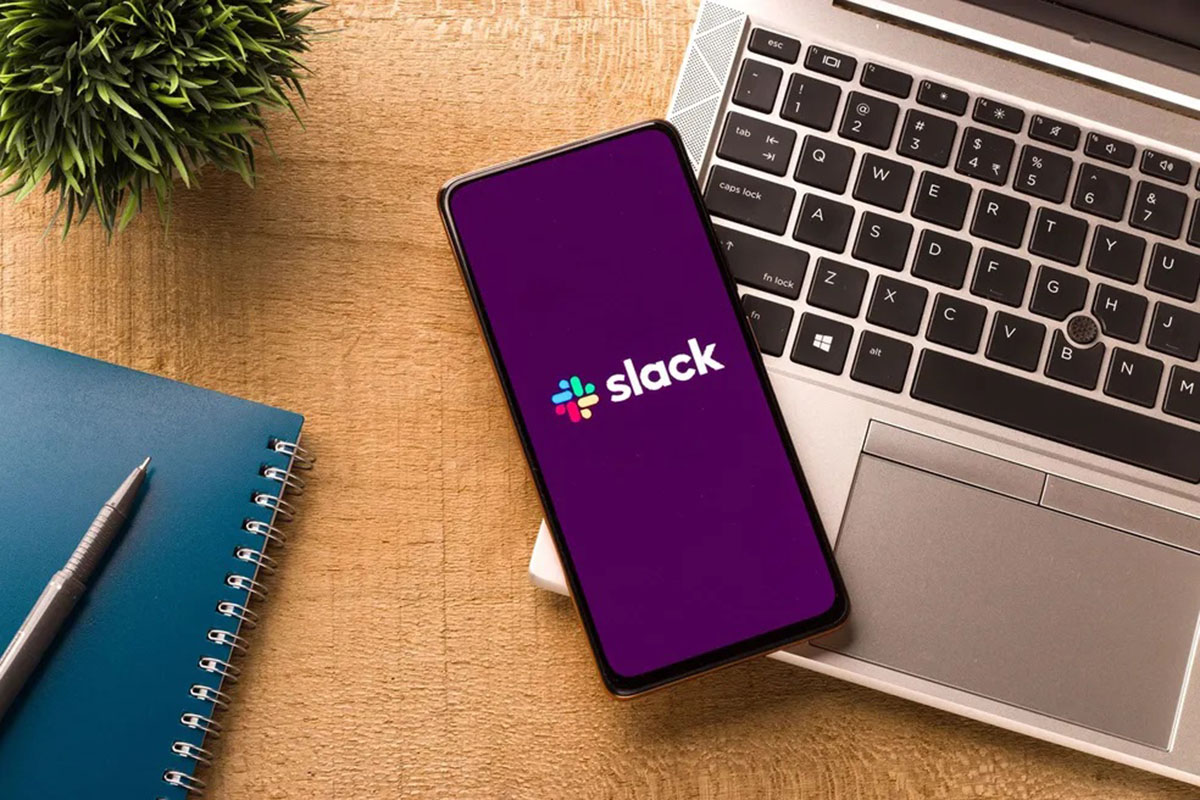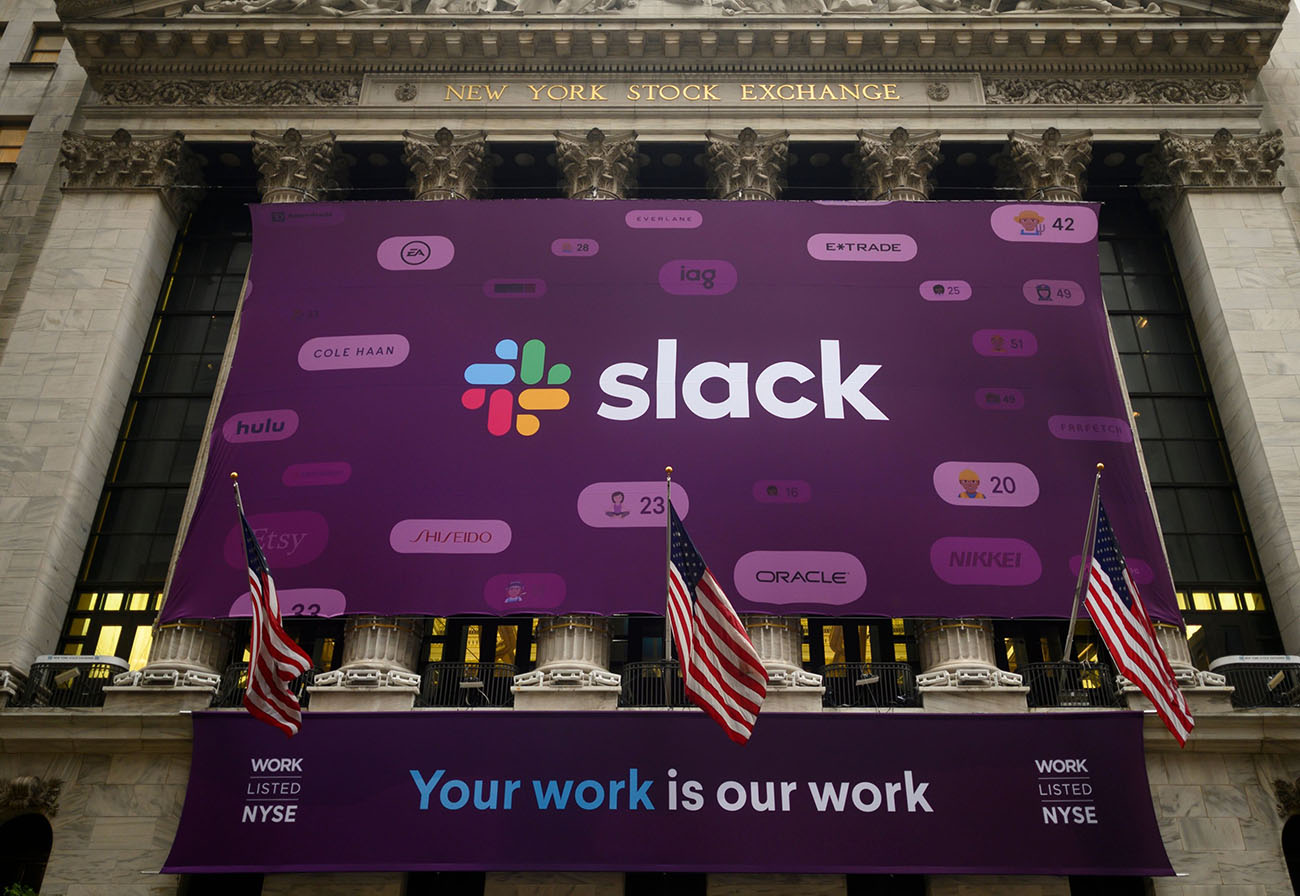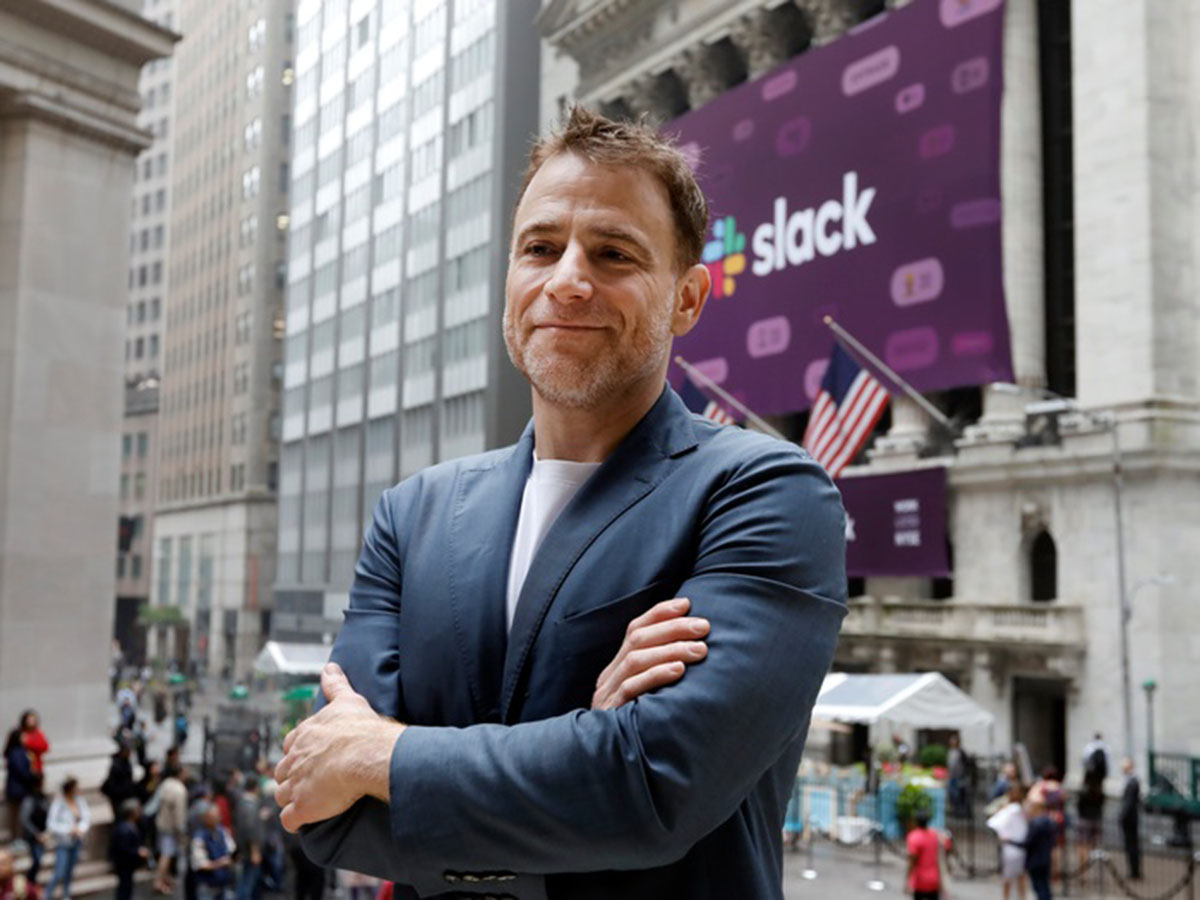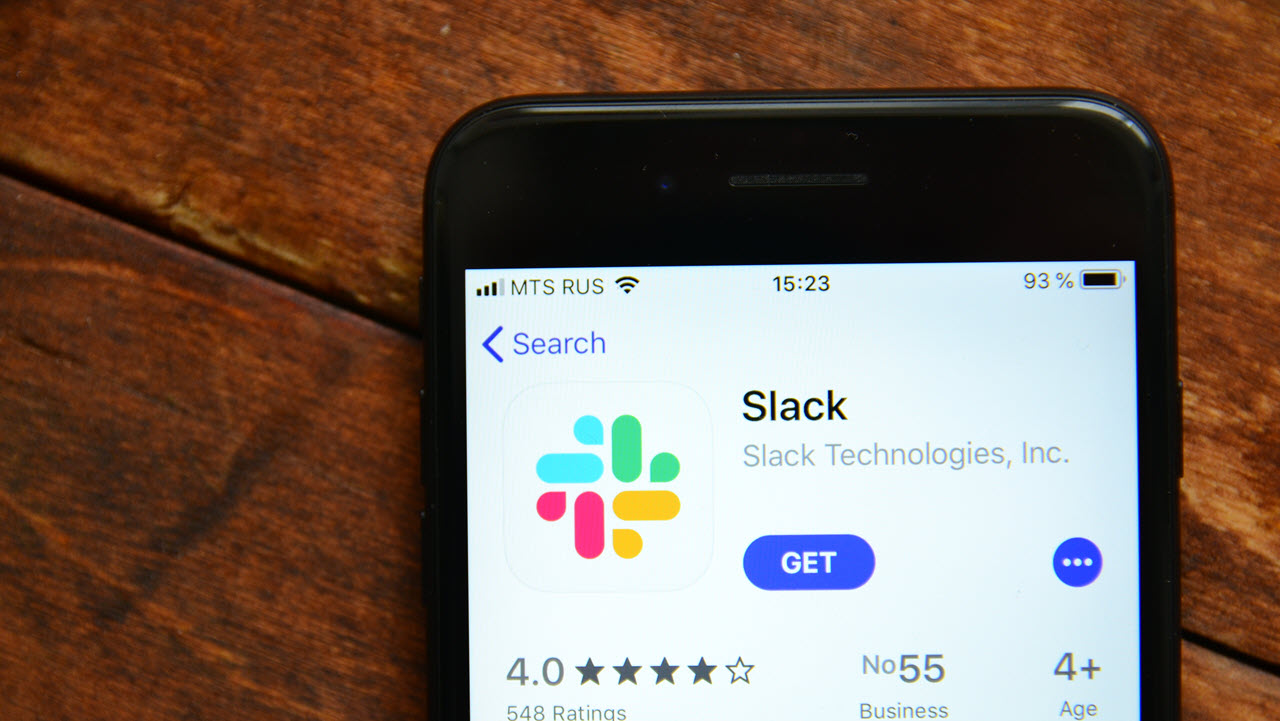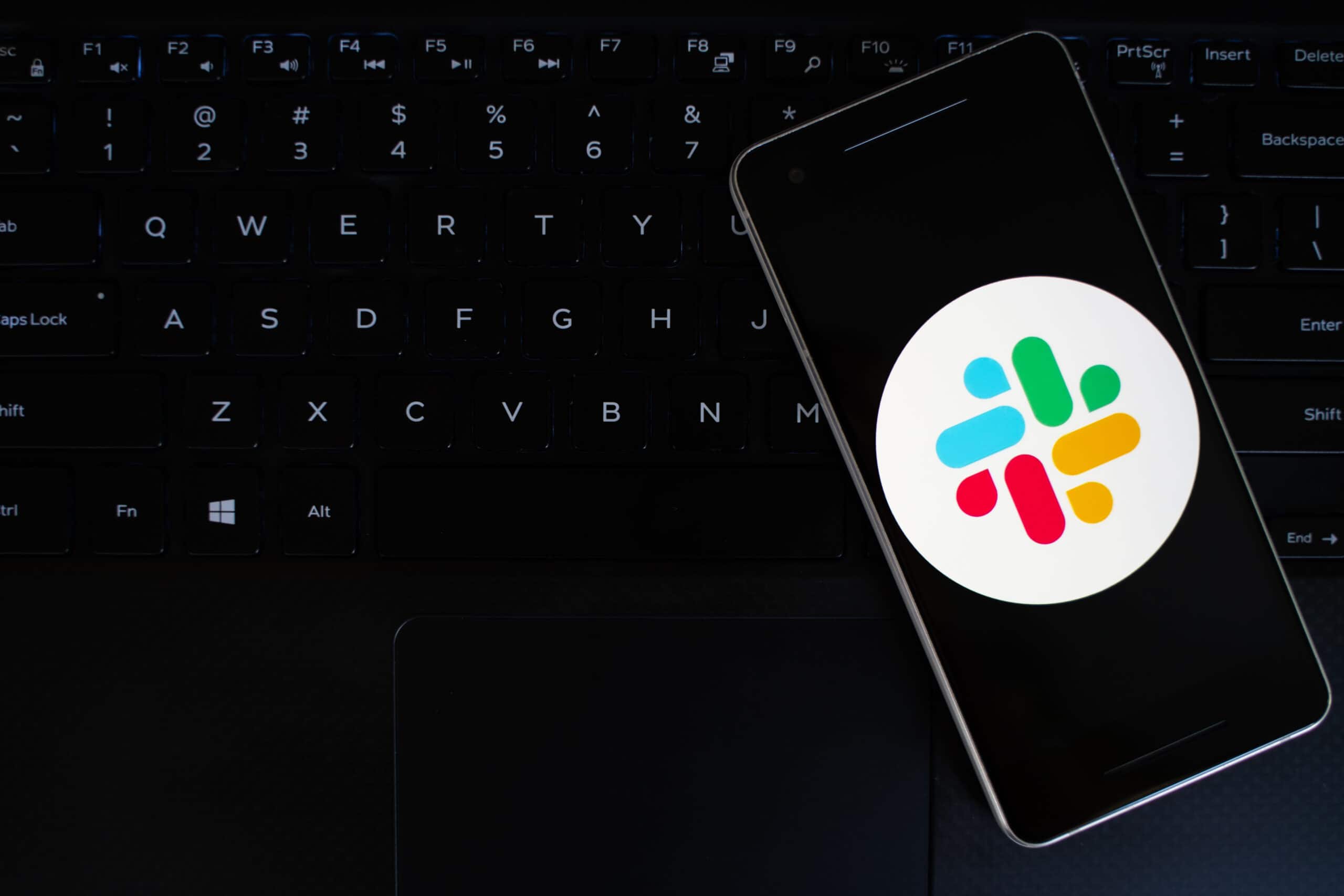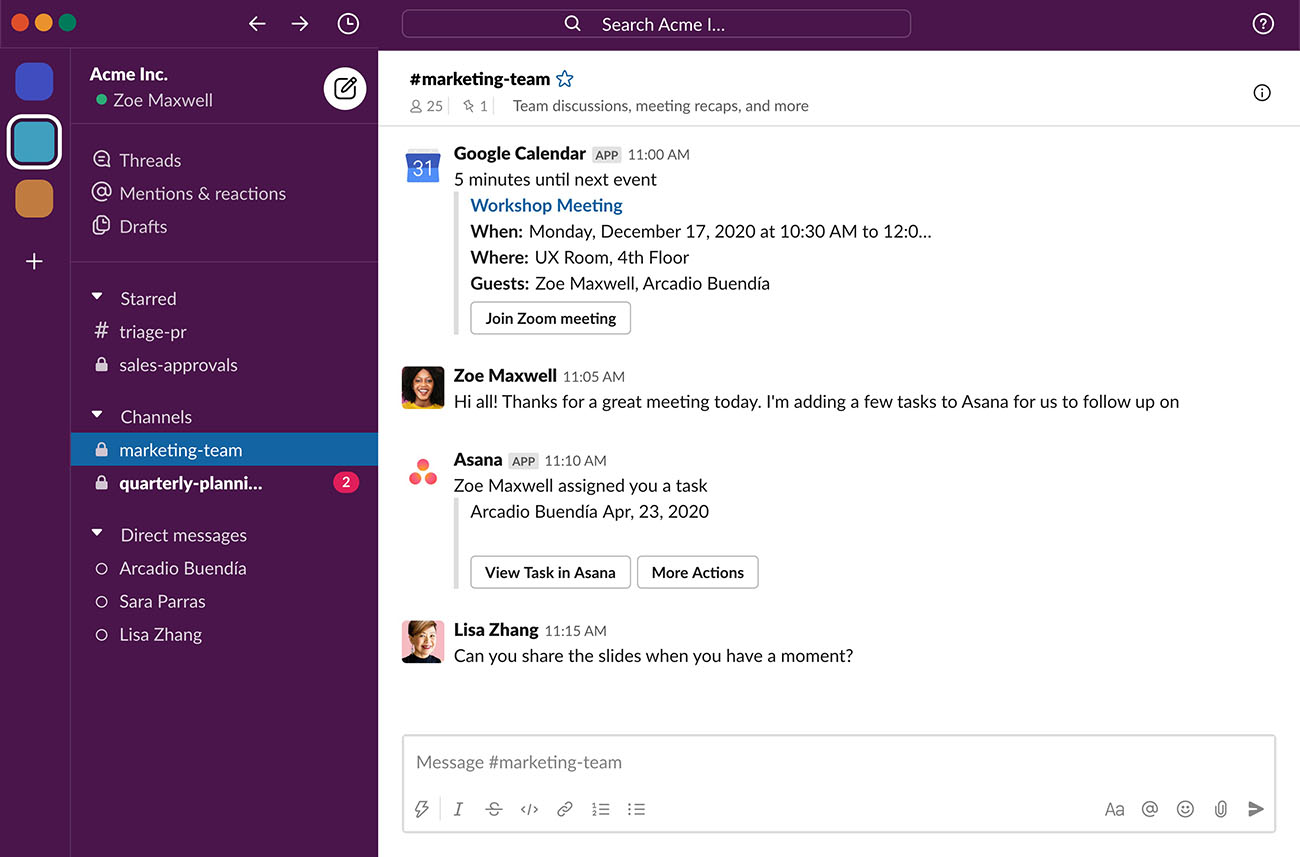Introduction
Slack has become an integral part of many companies’ communication and collaboration workflows. With its user-friendly interface, extensive integrations, and powerful messaging features, Slack has revolutionized how teams communicate and work together. It offers real-time messaging, file sharing, and team collaboration tools all in one platform.
In this article, we will explore a variety of industries and the companies within them that have embraced Slack as their go-to communication tool. From the tech industry to finance, media and entertainment to healthcare, education to retail, hospitality to non-profit, and professional services, Slack has become a crucial component of their day-to-day operations.
It is not surprising that companies in the tech industry heavily rely on Slack for communication and collaboration. With remote teams, multiple projects, and constant updates, they need a platform that enables seamless communication. Companies like Google, IBM, and Adobe are just a few of the tech giants that have deployed Slack across their organizations. Slack’s integration capabilities allow these companies to connect various tools and streamline their workflows.
The finance industry, known for its strict regulations and security protocols, also finds value in using Slack. Companies such as JPMorgan Chase, Goldman Sachs, and American Express have adopted Slack as a communication channel while maintaining strict compliance with industry regulations. Slack’s security features, including data encryption and two-factor authentication, ensure that sensitive information remains secure.
In the media and entertainment industry, where collaboration and quick communication are key, Slack has gained popularity. Companies like Netflix, Spotify, and Buzzfeed rely on Slack to facilitate real-time discussions among editors, writers, and producers. It allows teams to coordinate and share feedback, ensuring seamless content creation and distribution.
The healthcare industry, with its complex workflows and high-stakes collaboration, has also recognized the benefits of using Slack. Hospitals, medical practices, and pharmaceutical companies leverage Slack to improve communication among healthcare professionals, streamline patient care, and facilitate remote consultations. Companies like Mayo Clinic, Pfizer, and Johnson & Johnson are among the healthcare organizations incorporating Slack.
In the education industry, where collaboration and effective communication are crucial, Slack is gaining traction. Universities, educational institutions, and online learning platforms use Slack to facilitate discussions among students, teachers, and administrators. Slack enables quick sharing of information, seamless group projects, and efficient communication channels. Notable institutions using Slack are Harvard University, Stanford University, and Khan Academy.
Retail companies are also embracing Slack as a means of internal communication and collaboration. Brands like Nike, Target, and Walmart have integrated Slack into their daily operations, allowing employees across different departments and locations to stay connected and share updates on various projects and initiatives.
The hospitality industry, known for its fast-paced environment and constant customer interactions, has found value in using Slack. Hotels, resorts, and Airbnb hosts rely on Slack to coordinate tasks, address guest requests promptly, and ensure smooth operations. Companies such as Marriott International, Hilton, and Airbnb utilize Slack to keep their teams connected and provide exceptional guest experiences.
Non-profit organizations are utilizing Slack to improve internal communication and collaboration. NGOs, foundations, and charitable organizations leverage Slack to coordinate volunteers, facilitate fundraising events, and organize campaigns. Companies like the Red Cross, UNICEF, and Greenpeace utilize Slack to streamline their operations and achieve their mission more effectively.
Lastly, professional services firms, such as consulting and law firms, have adopted Slack to enhance internal communication and collaboration. Companies like McKinsey & Company, Deloitte, and Latham & Watkins use Slack to connect teams, share important project updates, and communicate across departments.
In the following sections, we will dive deeper into each industry and explore the specific companies that have embraced Slack as their preferred communication tool. Whether it’s to improve productivity, streamline workflows, or enhance collaboration, Slack has become a trusted platform for companies across various industries.
Companies that Use Slack in the Tech Industry
The tech industry, known for its innovation and fast-paced environment, relies heavily on efficient communication and collaboration tools. Slack has become the go-to platform for many tech companies, enabling seamless information sharing, project management, and team collaboration. Let’s explore some noteworthy tech companies that have embraced Slack:
- Google: With its vast workforce spread across the globe, Google relies on Slack to connect teams and foster collaboration. Slack’s integration capabilities allow Google employees to access and share information from various tools and platforms, streamlining their workflows.
- IBM: IBM, a leading technology company, uses Slack to facilitate real-time communication among its employees, including remote teams. Slack’s powerful search functionality helps IBM employees quickly find previous conversations, documents, and important project details.
- Adobe: As a company that specializes in creative software, Adobe values efficient collaboration. Slack provides a space for Adobe’s designers, developers, and marketers to share ideas, provide feedback, and coordinate on various projects.
- Microsoft: Even though Microsoft has its communication platform, Teams, it also uses Slack internally. Slack serves as a tool for cross-team collaboration and knowledge sharing within Microsoft, promoting a culture of transparency and effective communication.
- Netflix: The streaming giant Netflix relies on Slack to streamline communication and collaboration among its global content production teams. Slack channels allow Netflix employees to coordinate release schedules, share production updates, and address any issues that arise during the content creation process.
- GitHub: GitHub, a popular platform for code sharing and version control, integrates with Slack to provide real-time notifications and updates on code repositories. Developers can receive instant alerts and collaborate on projects seamlessly through the integration.
- Twitter: Twitter uses Slack to enable effective communication among its geographically dispersed teams. Slack channels help Twitter employees coordinate marketing campaigns, respond to customer inquiries, and stay updated on critical platform developments.
- Square: Square, a leading payment processing company, has found value in using Slack to improve internal communication and project management. Slack channels facilitate seamless collaboration between Square’s development, marketing, and customer support teams.
- Salesforce: Salesforce, a pioneer in customer relationship management (CRM) software, utilizes Slack to foster communication across its sales, marketing, and support teams. Slack’s integration with Salesforce allows employees to access important client information without leaving the platform.
- Atlassian: As a software development company, Atlassian understands the importance of effective collaboration. Slack helps Atlassian’s teams communicate and coordinate on projects, ensuring smooth development cycles and efficient product releases.
These are just a few examples of the many tech companies that have integrated Slack into their workflows. Whether it’s for coordinating remote teams, sharing project updates, or fostering collaboration, Slack has become an indispensable tool in the tech industry. Its user-friendly interface, extensive integrations, and powerful messaging features continue to make it the preferred choice for tech companies worldwide.
Companies that Use Slack in the Finance Industry
The finance industry, with its stringent regulations and need for secure communications, has embraced Slack as an effective collaboration tool. Slack provides a secure and efficient platform for financial institutions to communicate, share information, and streamline workflows. Let’s take a look at some notable companies in the finance industry that use Slack:
- JPMorgan Chase: One of the largest financial institutions in the world, JPMorgan Chase, relies on Slack for internal communications. Slack’s advanced security features, including end-to-end encryption and enterprise-grade security, ensure that sensitive information is protected.
- Goldman Sachs: As a global investment banking and financial services company, Goldman Sachs values effective collaboration among its teams. Slack allows Goldman Sachs employees to share updates, discuss critical market insights, and coordinate projects across different departments.
- American Express: American Express leverages Slack to enhance internal communication and teamwork. Slack channels enable American Express teams to collaborate on projects, discuss customer inquiries, and share important business updates in real-time.
- Morgan Stanley: Morgan Stanley, a leading investment bank, embraces Slack to facilitate seamless communication among its employees. Slack’s flexible chat channels allow Morgan Stanley teams to coordinate on financial research, monitor market trends, and enhance cross-team collaboration.
- BlackRock: BlackRock, the world’s largest asset management firm, has adopted Slack as a communication tool. Slack’s integration capabilities enable BlackRock employees to connect with various data sources, monitor investments, and discuss investment strategies efficiently.
- Citigroup: Citigroup utilizes Slack to improve communication and collaboration among its global teams. Slack channels provide a space for Citigroup employees to exchange ideas, share market insights, and coordinate on client transactions and services.
- HSBC: HSBC, a multinational banking and financial services organization, recognizes the value of using Slack for efficient internal communication. Slack’s integrations with HSBC’s existing platforms enable employees to access important customer information and collaborate on client projects easily.
- Visa: Visa, a global payments technology company, utilizes Slack to connect its employees across different departments and locations. Slack’s searchable message history and file sharing capabilities allow Visa teams to find and share information quickly, improving productivity and reducing communication barriers.
- Barclays: Barclays, a multinational investment bank and financial services company, has incorporated Slack into its communication and collaboration workflows. Slack’s instant messaging and file sharing capabilities allow Barclays employees to collaborate seamlessly on client transactions, research, and operational tasks.
- Prudential Financial: Prudential Financial, a multinational life insurance and financial services company, finds value in using Slack for internal communication. Slack’s ease of use and ability to integrate with other tools enable Prudential Financial employees to discuss policy updates, share customer insights, and coordinate on financial planning activities effectively.
These finance industry companies are just a few examples of how Slack enables secure and efficient communication within the sector. By using Slack, financial institutions can improve collaboration, streamline workflows, and maintain compliance with industry regulations. Slack’s robust security measures and integration capabilities make it a valuable asset for companies in the finance industry.
Companies that Use Slack in the Media and Entertainment Industry
The media and entertainment industry thrives on collaboration and timely communication. From content creation to distribution, companies in this sector rely on effective coordination among teams. Slack has become a popular tool in the industry, providing a centralized platform for communication, file sharing, and project management. Let’s explore some notable media and entertainment companies that use Slack:
- Netflix: As one of the leading streaming platforms, Netflix utilizes Slack to facilitate real-time communication among its content production teams. Slack channels allow producers, directors, writers, and editors to collaborate seamlessly, ensuring smooth content creation and distribution.
- Spotify: The renowned music streaming platform Spotify relies on Slack to foster collaboration and communication among its global teams. Slack allows Spotify employees to share updates on music releases, discuss marketing strategies, and coordinate with artists and record labels.
- Buzzfeed: Buzzfeed, a digital media company known for its engaging content, utilizes Slack as a central hub for internal communication. Slack channels enable Buzzfeed writers, editors, and designers to collaborate on articles, exchange ideas, and provide feedback in real-time.
- Disney: Disney, a prominent entertainment company, leverages Slack to connect its various departments and teams. From film production to marketing, Slack allows Disney employees to exchange updates, discuss creative ideas, and coordinate on projects efficiently.
- Warner Bros: Warner Bros, a major film and television production company, utilizes Slack to streamline project communication and collaboration. Slack channels allow teams within Warner Bros to coordinate on casting, production schedules, and post-production activities.
- ESPN: Sports media giant ESPN relies on Slack to foster real-time communication among its reporters, editors, and production teams. Slack channels enable ESPN employees to discuss breaking news, coordinate live broadcasts, and collaborate on investigative reporting.
- The New York Times: The New York Times, one of the most prominent newspapers globally, embraces Slack to enhance coordination among its journalists and editors. Slack’s instant messaging capabilities enable real-time discussions on news stories, share updates, and coordinate editorial activities.
- HBO: HBO, a renowned television network, uses Slack to improve communication and collaboration among its creative teams. Slack channels allow HBO employees to discuss upcoming shows, share script revisions, and coordinate on post-production tasks.
- ViacomCBS: ViacomCBS, a leading global media conglomerate, has integrated Slack into its communication workflows. Slack provides a space for ViacomCBS employees to collaborate on content strategy, coordinate marketing campaigns, and share important updates across its various brands.
- Universal Music Group: Universal Music Group, one of the major record labels globally, relies on Slack to foster collaboration amongst its teams. Slack channels enable Universal Music Group employees to share artist updates, coordinate album releases, and collaborate on marketing strategies.
These companies in the media and entertainment industry are just a snapshot of the many organizations that have recognized the value of using Slack for their communication and collaboration needs. By leveraging Slack’s features, media and entertainment companies can enhance teamwork, improve content creation processes, and ensure a seamless distribution of their products.
Companies that Use Slack in the Healthcare Industry
The healthcare industry relies on effective communication and collaboration to provide quality patient care. With its emphasis on timely and secure information sharing, Slack has gained traction as a communication tool within the healthcare sector. Let’s explore some notable companies in the healthcare industry that use Slack:
- Mayo Clinic: Mayo Clinic, a renowned medical practice and research organization, relies on Slack to streamline communication among its healthcare professionals. Slack channels facilitate secure and efficient collaboration, allowing doctors, nurses, and administrative staff to coordinate patient care effectively.
- Pfizer: Pfizer, a multinational pharmaceutical company, has incorporated Slack into its communication workflows. Slack channels enable Pfizer employees to share research findings, discuss clinical trial updates, and coordinate on drug development projects across different teams and departments.
- Johnson & Johnson: Johnson & Johnson, a global healthcare company, recognizes the value of using Slack to improve internal communication. Slack channels allow Johnson & Johnson employees to share medical research insights, discuss marketing strategies, and coordinate on product launches.
- Cleveland Clinic: Cleveland Clinic, a renowned academic medical center, uses Slack to enhance communication among its healthcare professionals dispersed across different campuses. Slack’s search functionality enables Cleveland Clinic teams to access previous discussions, share patient information, and coordinate on complex medical cases.
- Mount Sinai Health System: Mount Sinai Health System, a hospital network based in New York City, leverages Slack to facilitate communication and collaboration among its healthcare professionals. Slack channels enable Mount Sinai teams to coordinate patient care, discuss treatment plans, and share important updates in real-time.
- Kaiser Permanente: Kaiser Permanente, a healthcare consortium, utilizes Slack to improve communication and collaboration among its medical teams. Slack’s integration capabilities allow Kaiser Permanente employees to access patient records, coordinate on treatment plans, and discuss clinical research findings.
- Abbott Laboratories: Abbott Laboratories, a global healthcare company, relies on Slack to foster collaboration and communication among its teams. Slack channels enable Abbott Laboratories employees to share updates on medical device developments, discuss regulatory requirements, and coordinate on clinical trials.
- Merck: Merck, a multinational pharmaceutical company, embraces Slack to enhance internal communication and project management. Slack’s instant messaging capabilities allow Merck employees to discuss drug development progress, coordinate research activities, and share critical updates in real-time.
- GE Healthcare: GE Healthcare, a leading provider of medical imaging technology and diagnostic solutions, utilizes Slack to improve collaboration among its teams. Slack channels enable GE Healthcare employees to discuss product development, address customer inquiries, and coordinate on installation projects.
- AstraZeneca: AstraZeneca, a global pharmaceutical company, has integrated Slack into its communication workflows. Slack’s features enable AstraZeneca employees to exchange research findings, discuss clinical trial progress, and coordinate on drug manufacturing processes.
These companies in the healthcare industry demonstrate the diverse ways in which Slack can be utilized to enhance communication and collaboration in a secure and efficient manner. By leveraging Slack’s features, healthcare organizations can improve care coordination, facilitate research collaboration, and ensure the seamless exchange of information among healthcare professionals.
Companies that Use Slack in the Education Industry
The education industry has quickly recognized the value of using Slack as a communication and collaboration tool. From universities to online learning platforms, Slack has become a popular choice for facilitating seamless communication among students, teachers, and administrators. Let’s explore some notable companies in the education industry that use Slack:
- Harvard University: Harvard University, renowned for its academic excellence, has embraced Slack as a platform to enhance communication and collaboration among its students and faculty. Slack channels enable students to discuss coursework, share resources, and coordinate group projects.
- Stanford University: Stanford University, another prestigious institution, uses Slack to facilitate student and faculty communication. Slack provides a space for Stanford students to collaborate on research, share updates on campus events, and engage in academic discussions.
- Khan Academy: Khan Academy, an online learning platform, utilizes Slack to improve communication among its team of educators and support staff. Slack channels enable Khan Academy employees to coordinate content development, address student inquiries, and share updates on new course offerings.
- edX: edX, a leading online learning platform, relies on Slack to connect its team of instructors, course developers, and support staff. Slack enables real-time communication, collaboration on course materials, and quick resolution of student inquiries.
- University of California, Berkeley: The University of California, Berkeley, uses Slack as a communication tool to foster collaboration among its diverse student body and faculty. Slack channels allow students to collaborate on group projects, seek academic support, and stay updated on campus events.
- Georgia Institute of Technology: Georgia Tech utilizes Slack to enhance communication and collaboration among its students, faculty, and staff members. Slack channels enable students to coordinate on class projects, share research findings, and seek assistance from professors.
- University of Oxford: The University of Oxford, one of the oldest and most prestigious universities, incorporates Slack into its communication workflows. Slack facilitates seamless communication among students, staff, and faculty across departments, fostering collaboration and knowledge exchange.
- Coursera: Coursera, an online learning platform offering courses from top universities, integrates Slack to enhance communication among learners and instructors. Slack channels enable students to discuss course material, ask questions, and connect with fellow learners.
- MIT OpenCourseWare: MIT OpenCourseWare, a platform offering free access to MIT course materials, embraces Slack as a communication tool. Slack channels facilitate discussions among self-learners, allowing them to collaborate, seek guidance, and share resources.
- Codecademy: Codecademy, an online learning platform for coding and programming, uses Slack to foster community and collaboration among its learners. Slack channels provide Codecademy users with a space to share coding challenges, seek help, and celebrate their coding achievements.
These companies in the education industry demonstrate the versatility of Slack as a communication and collaboration tool. Whether in a physical classroom or an online learning environment, Slack enables students and educators to connect, share knowledge, and collaborate effectively.
Companies that Use Slack in the Retail Industry
The retail industry, with its dynamic and fast-paced environment, relies on effective communication and collaboration to drive successful operations. Slack has emerged as a valuable tool for retail companies, providing a centralized platform for teams to connect, share information, and streamline workflows. Let’s explore some notable companies in the retail industry that use Slack:
- Nike: Nike, a leading sportswear and athletic shoe brand, utilizes Slack to enhance internal communication and collaboration. Slack channels enable Nike employees to coordinate on product launches, share marketing initiatives, and address customer inquiries efficiently.
- Target: The retail giant Target relies on Slack to improve communication among its teams, which span across various departments and locations. Slack channels enable Target employees to collaborate on merchandising strategies, share updates on sales promotions, and coordinate on inventory management.
- Walmart: Walmart, one of the world’s largest retailers, embraces Slack to streamline communication across its vast network of stores and distribution centers. Slack channels allow Walmart employees to coordinate on logistics, share updates on product availability, and address customer service inquiries.
- Amazon: Amazon, the global e-commerce giant, uses Slack to facilitate communication and collaboration among its teams. Slack channels enable Amazon employees to coordinate on product listings, share updates on order fulfillment, and address customer inquiries in a timely manner.
- Best Buy: Best Buy, a prominent electronics retailer, leverages Slack to connect its teams across different store locations and corporate offices. Slack helps Best Buy employees coordinate on inventory management, share updates on product launches, and address customer service issues promptly.
- Gap Inc.: Gap Inc., the parent company of well-known clothing and accessory brands like Gap, Banana Republic, and Old Navy, uses Slack to foster collaboration among its diverse team of designers, marketers, and store employees. Slack channels enable Gap Inc. teams to coordinate on product design, share marketing campaigns, and discuss sales targets.
- Home Depot: Home Depot, a leading home improvement retailer, embraces Slack as a communication tool for its employees. Slack channels enable Home Depot teams to collaborate on construction projects, share updates on inventory management, and address customer inquiries with ease.
- Zara: Zara, a global fashion retailer, has incorporated Slack into its communication and collaboration workflows. Slack channels allow Zara teams to coordinate on trend analysis, discuss product design, and streamline supply chain management for efficient production and distribution.
- Coca-Cola: Coca-Cola, a multinational beverage company, relies on Slack to facilitate communication and collaboration among its teams. Slack channels enable Coca-Cola employees to coordinate marketing campaigns, share updates on product launches, and discuss promotions with their respective retail partners.
- Starbucks: Starbucks, a renowned coffeehouse chain, utilizes Slack to enhance communication and collaboration among its store managers and employees. Slack channels enable Starbucks teams to coordinate on inventory management, share updates on store operations, and address customer service inquiries promptly.
These companies in the retail industry demonstrate the diverse ways in which Slack is used to streamline communication, collaborate effectively, and drive successful retail operations. By leveraging Slack’s features, retail companies can improve coordination among teams, enhance customer service, and stay agile in a competitive market.
Companies that Use Slack in the Hospitality Industry
The hospitality industry thrives on efficient communication and coordination to deliver exceptional guest experiences. Slack has become a valuable tool in the industry, providing a centralized platform for teams to connect, collaborate, and streamline workflows. Let’s explore some notable companies in the hospitality industry that use Slack:
- Marriott International: Marriott International, a leading hotel chain, relies on Slack to enhance communication and collaboration across its properties worldwide. Slack channels enable Marriott teams to coordinate on reservations, share updates on guest requests, and address operational issues promptly.
- Hilton: Hilton, a global hospitality company, uses Slack to facilitate seamless communication among its teams, including hotel staff, corporate employees, and management. Slack channels enable Hilton employees to coordinate on guest service, share updates on promotional campaigns, and streamline daily operations.
- Airbnb: Airbnb, an online marketplace for vacation rentals, embraces Slack as a communication tool for its teams and hosts across the globe. Slack channels allow Airbnb employees and hosts to coordinate on bookings, address guest inquiries, and share updates on property management.
- Hyatt Hotels Corporation: Hyatt Hotels Corporation leverages Slack to enhance communication and collaboration among its global team of hotel staff, managers, and corporate employees. Slack channels enable Hyatt teams to coordinate on guest preferences, share updates on event planning, and address operational issues in real-time.
- InterContinental Hotels Group (IHG): IHG, one of the world’s leading hotel companies, uses Slack as a communication tool to connect its diverse teams. Slack channels enable IHG employees to coordinate on room reservations, share updates on loyalty programs, and streamline customer service interactions.
- Four Seasons Hotels and Resorts: Four Seasons Hotels and Resorts embraces Slack as a platform for effective communication and collaboration among its employees globally. Slack channels enable Four Seasons teams to coordinate on guest service, share updates on property operations, and address maintenance issues promptly.
- MGM Resorts International: MGM Resorts International, a renowned hospitality company, relies on Slack to streamline communication and collaboration among its various resorts and teams. Slack channels enable MGM teams to coordinate on event planning, share updates on room bookings, and address customer inquiries efficiently.
- Wyndham Hotels & Resorts: Wyndham Hotels & Resorts utilizes Slack to facilitate communication among its hotel staff and management teams. Slack channels enable Wyndham teams to coordinate on guest service, share updates on marketing campaigns, and address operational issues in real-time.
- Accor: Accor, a leading hospitality company, embraces Slack as a communication tool across its hotels and resorts worldwide. Slack channels enable Accor teams to coordinate on guest service, share updates on property management, and address operational needs quickly and effectively.
- Marriott Vacation Club International: Marriott Vacation Club International uses Slack to enhance internal communication and coordination among its various vacation resorts. Slack channels enable Marriott Vacation Club teams to coordinate on guest reservations, share updates on property maintenance, and address customer inquiries promptly.
These companies in the hospitality industry demonstrate the diverse ways in which Slack is used to streamline communication, facilitate collaboration, and deliver exceptional guest experiences. By leveraging Slack’s features, hospitality companies can enhance coordination among teams, address guest needs efficiently, and ensure seamless operations.
Companies that Use Slack in the Non-Profit Industry
The non-profit industry relies heavily on effective communication and collaboration to achieve their mission and drive positive change. Slack has emerged as a valuable tool for non-profit organizations, providing a centralized platform for teams to connect, share information, and streamline workflows. Let’s explore some notable companies in the non-profit industry that use Slack:
- Red Cross: The Red Cross, an international humanitarian organization, utilizes Slack to enhance internal communication and collaboration. Slack channels enable Red Cross teams to coordinate disaster response efforts, share updates on relief operations, and address volunteer inquiries.
- UNICEF: UNICEF, a United Nations agency that works for children’s rights and well-being, relies on Slack as a communication tool for its global team. Slack channels enable UNICEF employees and volunteers to share updates on programs, coordinate fundraising efforts, and address child welfare issues in real-time.
- Greenpeace: Greenpeace, an environmental organization, embraces Slack to enhance communication and coordination among its teams worldwide. Slack channels enable Greenpeace activists and employees to discuss campaign strategies, coordinate protest actions, and share updates on sustainability initiatives.
- Save the Children: Save the Children, an international non-profit organization, uses Slack to improve communication and collaboration among its global teams working to protect children’s rights. Slack channels enable Save the Children employees to coordinate emergency response efforts, share updates on educational programs, and address fundraising activities.
- World Wildlife Fund (WWF): The World Wildlife Fund utilizes Slack to enhance communication and collaboration among its teams working to conserve nature and combat climate change. Slack channels enable WWF teams to discuss conservation projects, coordinate public campaigns, and address biodiversity-related challenges in real-time.
- Habitat for Humanity: Habitat for Humanity, a non-profit organization focused on providing affordable housing, embraces Slack as a communication tool for its teams across different locations. Slack channels enable Habitat for Humanity employees and volunteers to coordinate on construction projects, share updates on fundraiser events, and address administrative matters promptly.
- Amnesty International: Amnesty International, a global human rights organization, relies on Slack to enhance communication and coordination among its teams working to protect human rights globally. Slack channels enable Amnesty International teams to coordinate advocacy campaigns, share updates on human rights violations, and address urgent cases promptly.
- Feeding America: Feeding America, a non-profit organization focused on hunger relief, utilizes Slack to enhance communication among its team working across the United States. Slack channels enable Feeding America employees and volunteers to coordinate food distribution efforts, share updates on fundraising initiatives, and address community needs swiftly.
- Doctors Without Borders: Doctors Without Borders, an international medical humanitarian organization, recognizes the value of using Slack as a communication tool. Slack channels enable Doctors Without Borders teams to coordinate medical missions, share updates on healthcare projects, and address medical emergency needs expediently.
- Oxfam: Oxfam, an international confederation of non-profit organizations, uses Slack to facilitate communication and collaboration among its teams working to address poverty and inequality. Slack channels enable Oxfam teams to coordinate on advocacy campaigns, share updates on development projects, and address humanitarian crises promptly.
These non-profit organizations demonstrate the diverse ways in which Slack is used to improve communication, facilitate collaboration, and drive impactful change. By leveraging Slack’s features, non-profit companies can enhance coordination among teams, streamline their operations, and work towards achieving their mission more effectively.
Companies that Use Slack in the Professional Services Industry
The professional services industry, which includes consulting firms, law firms, and other professional service providers, relies on effective communication and collaboration to deliver high-quality services to clients. Slack has emerged as a vital tool in this industry, providing a centralized platform for teams to connect, share information, and streamline workflows. Let’s explore some notable companies in the professional services industry that use Slack:
- McKinsey & Company: McKinsey & Company, a global management consulting firm, utilizes Slack to enhance communication and collaboration among its diverse teams. Slack channels enable McKinsey consultants to coordinate on project deliverables, share industry insights, and stay connected across different offices.
- Deloitte: Deloitte, one of the largest professional services firms globally, relies on Slack as a communication tool for its employees and teams. Slack channels enable Deloitte professionals to coordinate on client engagements, share updates on regulatory changes, and collaborate on strategy development.
- Latham & Watkins: Latham & Watkins, a prominent global law firm, embraces Slack to enhance communication and collaboration among its lawyers, support staff, and partners. Slack channels enable Latham & Watkins teams to coordinate on legal cases, share updates on client matters, and address internal administrative needs promptly.
- KPMG: KPMG, one of the “Big Four” accounting firms, utilizes Slack to improve internal communication and collaboration among its teams. Slack channels enable KPMG professionals to coordinate on audits, share updates on financial regulations, and address client inquiries efficiently.
- Bain & Company: Bain & Company, a global management consulting firm, uses Slack to enhance communication and collaboration within its teams. Slack channels enable Bain consultants to coordinate on client projects, share insights on industry trends, and collaborate on strategic recommendations.
- Accenture: Accenture, a multinational professional services company, embraces Slack as a communication and collaboration tool for its diverse teams. Slack channels enable Accenture professionals to coordinate on technology implementations, share updates on digital transformation projects, and address client needs promptly.
- PricewaterhouseCoopers (PwC): PwC, another “Big Four” accounting firm, relies on Slack to enhance communication and collaboration among its professionals worldwide. Slack channels enable PwC teams to coordinate on audits, share updates on tax regulations, and collaborate on client advisory services.
- Ernst & Young (EY): EY, one of the largest professional services firms, utilizes Slack to facilitate communication and collaboration among its teams. Slack channels enable EY professionals to coordinate on audits, share updates on corporate governance practices, and address client inquiries promptly.
- Oliver Wyman: Oliver Wyman, a global management consulting firm, embraces Slack as a communication and collaboration tool. Slack channels enable Oliver Wyman consultants to coordinate on client engagements, share insights on industry disruption, and collaborate on strategic planning initiatives.
- Grant Thornton: Grant Thornton, a global accounting and consulting firm, relies on Slack as a tool for enhanced communication and collaboration among its professionals. Slack channels enable Grant Thornton teams to coordinate on audits, share updates on financial reporting standards, and collaborate on client advisory services.
These professional service firms demonstrate the diverse ways in which Slack is utilized to improve communication, foster collaboration, and deliver exceptional services to clients. By leveraging Slack’s features, professionals in the industry can enhance coordination, streamline workflows, and drive successful client engagements.
Conclusion
Slack has become an invaluable tool across various industries, revolutionizing communication and collaboration within companies. From the tech industry to finance, media and entertainment to healthcare, education to retail, hospitality to non-profit, and professional services, Slack has found its place as a central platform for teams to connect, share information, and streamline workflows.
In the tech industry, companies like Google, IBM, and Adobe rely on Slack to improve communication among their teams and enhance collaboration. The finance industry, with organizations such as JPMorgan Chase, Goldman Sachs, and American Express, recognizes the value of Slack in maintaining secure and efficient internal communication. In the media and entertainment industry, Netflix, Spotify, and Buzzfeed utilize Slack to facilitate real-time discussions and seamless content creation. Healthcare organizations like the Mayo Clinic, Pfizer, and Johnson & Johnson rely on Slack to communicate crucial information and streamline patient care. In the education industry, universities like Harvard and Stanford, as well as online platforms like Khan Academy and Coursera, leverage Slack to enhance collaboration and communication among students and educators.
Retail companies such as Nike, Target, and Amazon use Slack to improve communication and coordination across their departments, stores, and distribution centers. The hospitality industry sees the value of Slack with companies like Marriott International, Hilton, and Airbnb using it to facilitate communication among their staff and provide exceptional guest experiences. Non-profit organizations like the Red Cross, UNICEF, and Greenpeace utilize Slack to coordinate efforts, address urgent matters promptly, and drive meaningful change. Professional service firms like McKinsey & Company, Deloitte, and Latham & Watkins leverage Slack to enhance communication, collaboration, and client service delivery.
Overall, Slack has proven to be an indispensable tool for effective communication and collaboration across a wide range of industries. Its user-friendly interface, extensive integration capabilities, and powerful messaging features make it an ideal choice for companies and organizations looking to enhance coordination, streamline workflows, and improve productivity. With its continued innovation and adoption, Slack is likely to remain a key tool for fostering seamless communication and driving success in various industries for the foreseeable future.







